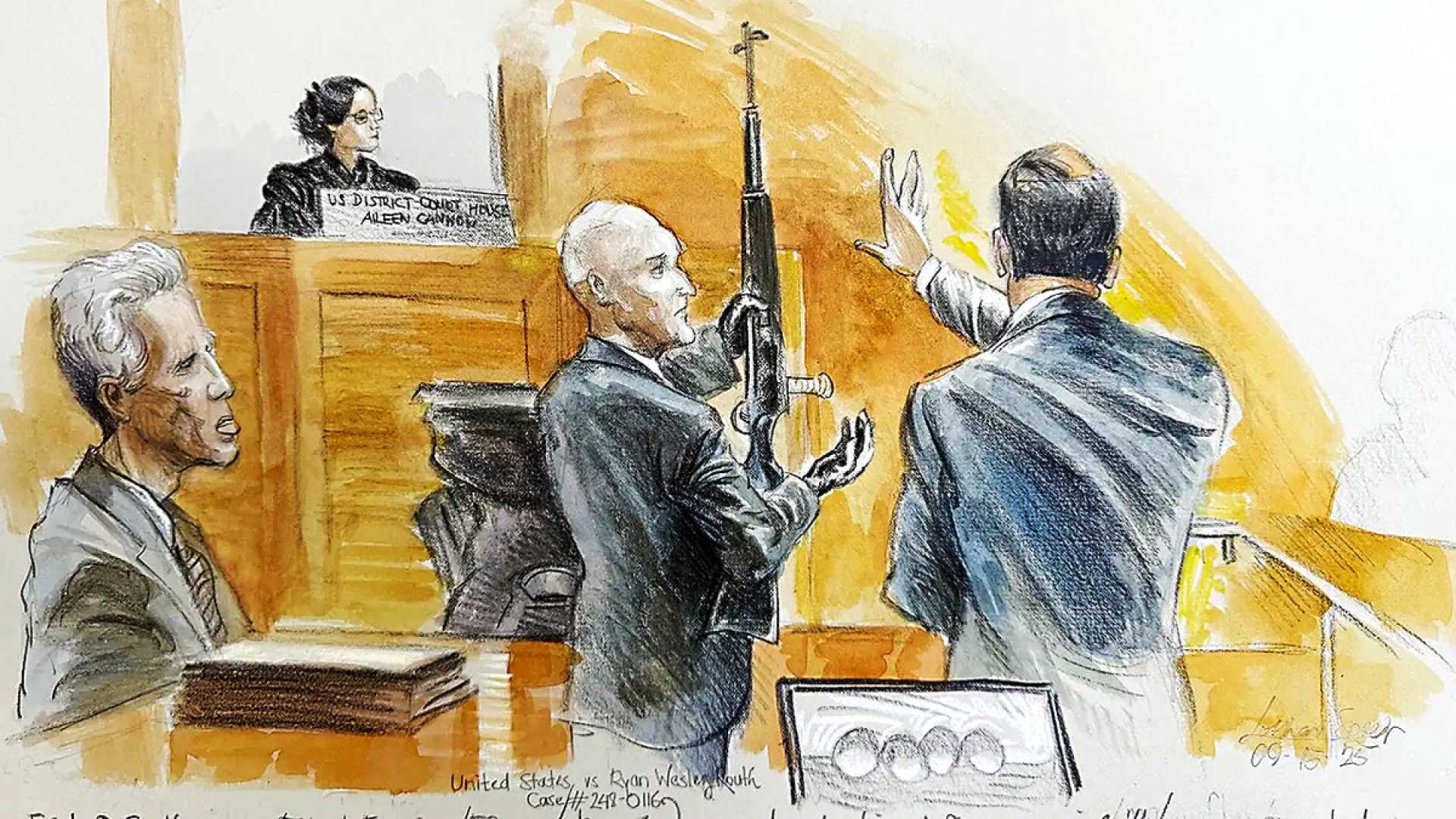News
Ryan Routh Rests Defense in Trial for Attempted Trump Assassination

FORT PIERCE, Florida — Ryan Routh, 59, accused of attempting to assassinate Donald Trump at a golf course last year, rested his case on September 22 after calling just three witnesses and choosing not to testify himself.
Representing himself, Routh has faced five charges, including attempted assassination of a major presidential candidate and assaulting a federal officer. Prosecutors allege he created a “sniper’s nest” near the sixth green of Trump International Golf Club on September 15, 2024.
Routh’s daughter, Sarah, has attended every day of the trial. She expressed support, noting, “I think he’s gonna try to prove, show who he is as a person.” She also praised his self-representation, saying, “he is doing a great job for no law education and no materials.”
The trial has reviewed extensive evidence, with prosecutors presenting 38 witnesses over nearly two weeks, detailing how Routh allegedly stalked Trump and collected various pieces of evidence, according to FBI supervisory special agent Kimberly McGreevy.
McGreevy highlighted cellphone records from Routh’s “burner phones,” which included search inquiries related to Trump’s rallies and logistics for an escape plan. The FBI also presented text messages that allegedly indicated Routh’s intentions to flee to Mexico after the assassination attempt.
Routh’s first witness, former Marine sniper Michael McClay, test-fired the rifle found at the scene, claiming it malfunctioned. However, cross-examination revealed he tested the weapon seven months post-incident and it had been treated with acid to recover the serial number, possibly affecting its performance.
During questioning, Routh attempted to outline a defense based on his character, asserting himself to be peaceful and nonviolent. However, U.S. District Judge Aileen Cannon frequently interrupted Routh for overstepping legal boundaries and straying from judicial procedures.
As the trial continued, Routh was told that closing arguments from both sides would occur on September 23. Judge Cannon warned that any deviations from the evidentiary focus during his argument could lead to her barring him from addressing the jury.
The jury has heard testimony about various elements that led authorities to Routh’s arrest, including a confession letter he allegedly wrote that prosecutors argue indicated his intent to carry through with the assassination.
Routh’s unorthodox trial strategy has drawn attention, with prosecutors poised to present evidence of other alleged violent comments he has made.
With the case’s conclusion hanging in balance, both sides prepare for the final arguments.












